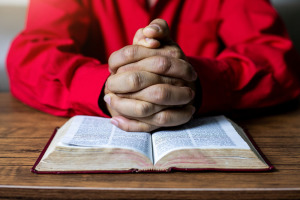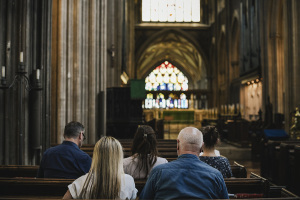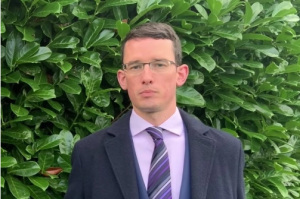Dozens of Gays Arrested in Nigeria Under Strict New Law
Dozens of gay men have reportedly been arrested in Nigeria, where a new law that bans same-sex marriage and makes participation in homosexual organizations illegal under the threat of imprisonment was recently signed into law.
Dorothy Aken'Ova of Nigeria's International Center for Reproductive Health and Sexual Rights says police in Bauchi State have compiled a list of 168 allegedly gay men and have already arrested 38 of them, according to The Telegraph.
Nigeria's controversial Same Sex Marriage Prohibition Act was signed by Nigerian President Goodluck Jonathan on Jan. 7, reports The Associated Press, which obtained a copy of the document on Monday. Legislators from The Nigerian National Assembly signed off on the law on Dec. 17, though no announcement was made about it and the reason for such secrecy is unclear.
The law states that those convicted of entering into a same-sex marriage or civil union could face up to 14 years in prison, among other things.
"A person who registers, operates or participates in gay clubs, societies or organizations, or directly or indirectly makes public show of same-sex amorous relationship in Nigeria, commits an offense and is liable on conviction to a term of 10 years," the law also states, according to the AP.
U.S. Secretary of State John Kerry issued a statement Monday saying the U.S. is "deeply concerned" by the new law.
"Beyond even prohibiting same sex marriage, this law dangerously restricts freedom of assembly, association, and expression for all Nigerians," said Kerry in a statement. "Moreover, it is inconsistent with Nigeria's international legal obligations and undermines the democratic reforms and human rights protections enshrined in its 1999 Constitution."
Nigeria is Africa's most populous nation with an estimated 174.5 million people as of July 2013, according to the CIA's World Factbook. Half of the nation is Muslim, while about 40 percent of the nation is Christian.
A Pew Research Survey of 39 countries conducted in 2013 found that Nigeria was the nation that was least accepting of homosexuality. In all, 98 percent of Nigerians said homosexuality should not be accepted by society, while only one percent said it should.
Christopher Doyle, president of Voice of the Voiceless, an advocacy organization that works to support former homosexuals and individuals with unwanted same-sex attraction (SSA), said Tuesday that the law is "overly punitive" and could create an environment of fear instead of one where people struggling with SSA can get help.
"In that sense it sort of drives the discourse around this issue underground, and I don't think that's a good thing," said Doyle.
He also says Nigeria, Uganda, Russia and India – nations that are taking hardline stances against homosexuality – might be acting in response to what they're seeing in Western cultures. Gay activism has forced a political correctness on many Western cultures, he says, which prevents those who believe in traditional marriage from sharing their beliefs without repercussions.
Adding to the list of concerns over the controversial law, the Joint United Nations Programme on HIV and AIDS (UNAIDS) and The Global Fund to Fight AIDS, Tuberculosis and Malaria fears the new law will prevent LGBT people who are at-risk of contracting HIV from accessing HIV services.
"The provisions of the law could lead to increased homophobia, discrimination, denial of HIV services and violence based on real or perceived sexual orientation and gender identity," a press release states. "It could also be used against organizations working to provide HIV prevention and treatment services to LGBT people."
Nigeria has the second largest HIV epidemic in the world, and in 2012 an estimated 3.4 million people were living with the virus in the African nation. UNAIDS and The Global Fund are calling for a review of the constitutionality of the law due to both the health and human rights issues at stake.





























